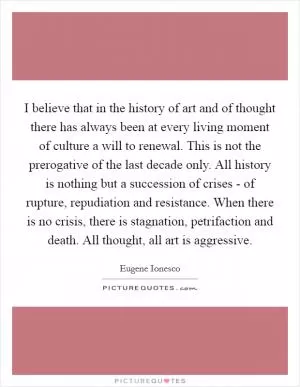A writer never has a vacation. For a writer, life consists of either writing or thinking about writing

A writer never has a vacation. For a writer, life consists of either writing or thinking about writing
Eugene Ionesco, the renowned Romanian-French playwright and dramatist, is often quoted as saying, "A writer never has a vacation. For a writer, life consists of either writing or thinking about writing." This statement perfectly encapsulates the mindset of a true artist like Ionesco, who dedicated his life to the craft of writing and creating thought-provoking works of literature.Ionesco was known for his absurdist style of writing, which often challenged conventional norms and explored the complexities of human existence. His most famous works, such as "The Bald Soprano" and "Rhinoceros," are prime examples of his unique approach to storytelling and his ability to blend humor with profound philosophical insights.
For Ionesco, writing was not just a job or a hobby – it was a way of life. He was constantly consumed by his thoughts and ideas, always seeking inspiration and new ways to express his creativity. Even when he was not physically writing, his mind was always at work, mulling over plots, characters, and themes.
In many ways, Ionesco's dedication to his craft mirrors the experiences of countless other writers throughout history. The creative process is not something that can be turned on and off at will – it is a constant, ever-present force that drives writers to explore the depths of their imagination and bring their ideas to life on the page.
For Ionesco, writing was a form of self-expression and a means of grappling with the complexities of the human condition. His works often delved into themes of identity, alienation, and the absurdity of everyday life, reflecting his own struggles and observations about the world around him.












 Friendship Quotes
Friendship Quotes Love Quotes
Love Quotes Life Quotes
Life Quotes Funny Quotes
Funny Quotes Motivational Quotes
Motivational Quotes Inspirational Quotes
Inspirational Quotes